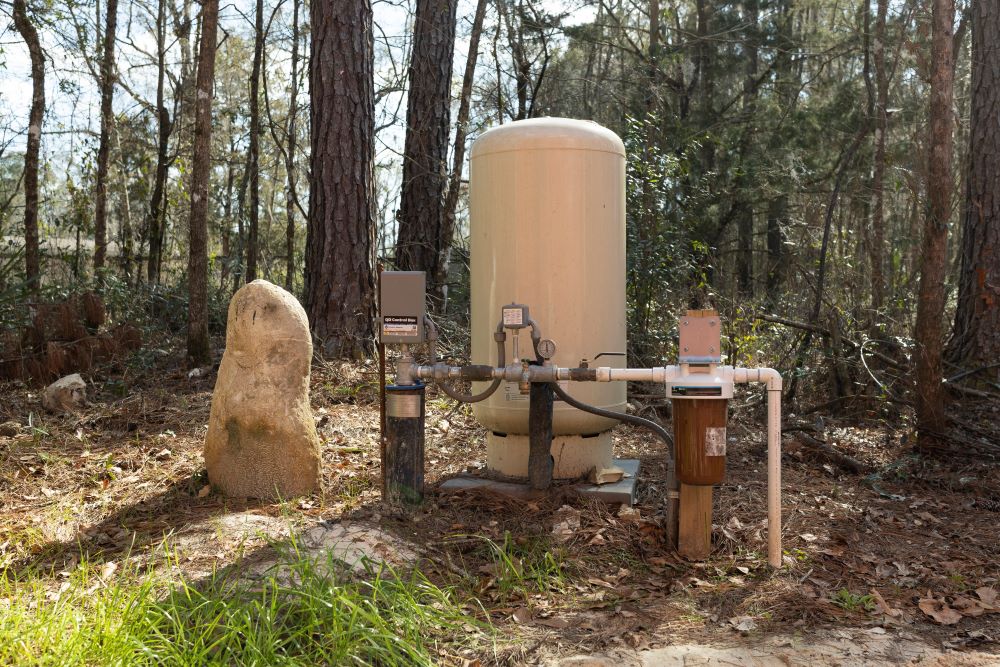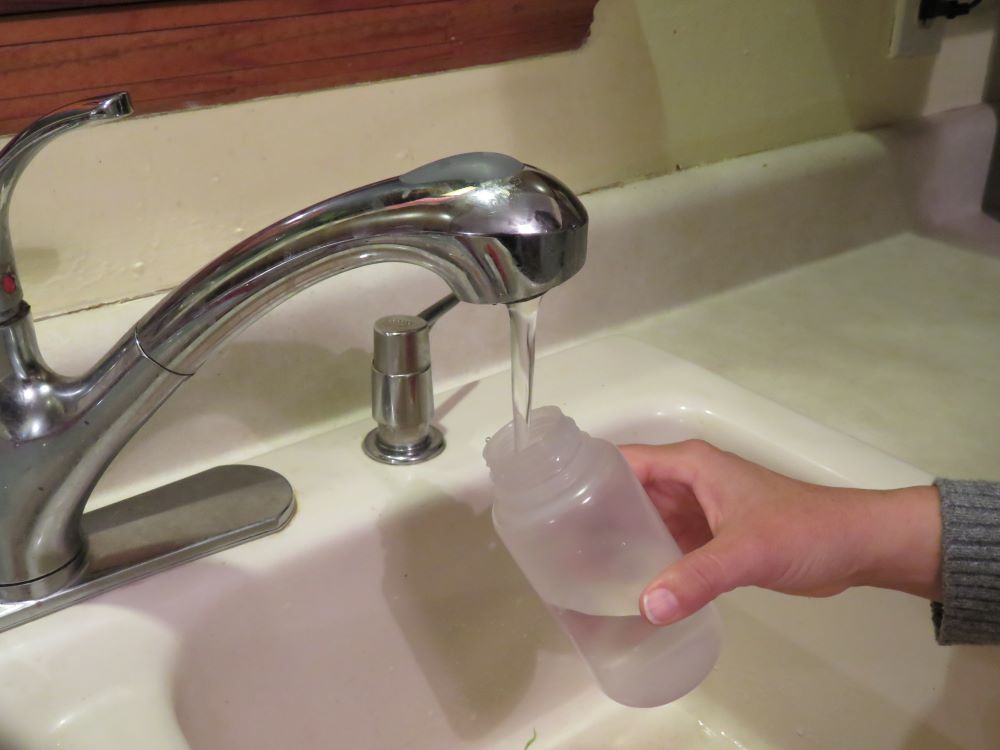
About 2.5 million Floridians rely on private wells for home consumption, which includes water for drinking, cooking, and personal hygiene. Private wells are not regulated by the EPA Clean Water Act, and well users are responsible for ensuring their water is safe to drink.
What should you have your well water tested for?
The Florida Department of Health (FDOH) recommends that well users test their well water once a year for bacteria at a minimum. Another important contaminant to test for is nitrate.
Bacteria: Labs generally test for total coliform (TC) bacteria and fecal coliforms (like E. coli).
- Coliform bacteria are a large group of bacteria and most are harmless. But a positive test result indicates that if they are in your water, other pathogens that cause diseases may also be present. They are used as indicator organisms.
- Fecal coliform bacteria are a subgroup of coliform bacteria found in human and other warm-blooded animal feces. E. coli are one species and some strains can cause diarrhea, food poisoning and other illnesses.
If your water sample tests positive for only total coliform bacteria or both TC and fecal coliform (E. coli), FDOH recommends your well be disinfected through shock chlorination. You can either hire a well contractor to do this or you can do it yourself. Information for how to shock chlorinate your well can be found at EDIS Private Wells 101: Bacterial Contamination and Shock Chlorination

Nitrate: The U.S. EPA set the Maximum Contaminant Level (MCL) allowed for nitrate in drinking water at 10 milligrams per liter of water (mg/L). Values above this are a particular concern for infants less than 6 months old because high nitrate levels can cause a type of “blue baby syndrome” (methemoglobinemia), where nitrate interferes with the capacity of hemoglobin in the blood to carry oxygen. It is especially important to test for nitrate if you have a young infant in the home that will be drinking well water or when well water will be used to make formula to feed the infant.
If test results come back above 10 mg/L, never boil nitrate contaminated water as a form of treatment. This will not remove nitrates. Use water from a tested source (bottled water or water from a public supply source) until the problem is addressed. Nitrate in well water can come from multiple sources, including fertilizers, animal waste and/or human sewage, such as from a septic tank.
You should also have your well water tested at any time when:
- The color, taste or odor of your well water changes or if you suspect that someone became sick after drinking your well water.
- A new well is drilled or if you have had maintenance done on your existing well
- A flood occurred and your well was affected
Remember: Bacteria and nitrate are by no means the only parameters that well water is tested for. Call your local health department to discuss what they recommend you should get the water tested for. FDOH also maintains an excellent website with many resources for private well users which includes information on potential contaminants and how to maintain your well to ensure the quality of your well water.
Where can you have your well water tested?
UF/IFAS Extension will be hosting a private well and water quality workshop on April 11 in Blountstown, with a Zoom option. We will cover well and septic system function and maintenance, water testing and how to prepare for hurricane season. We will also offer facilitated water testing. For more information and to register go to our Eventbrite link or you can also register by visiting the Calhoun County Extension Office, (850-674-8323). Last week’s post about the workshop provides more information as well.
In general, many county health departments accept samples for water testing. You can also submit samples to a certified commercial lab near you. Contact your county health department for information about what to have your water tested for. If they don’t offer testing, they often provide the name of certified laboratories near you. Or you can search for FDEP certified laboratories here.
If you have any questions, you can also reach out to me at albertin@ufl.edu or (850)875-7111.
- What to Do if a Sinkhole Opens on Your Property? - June 6, 2025
- Workshop on Private Well and Septic System Basics - October 18, 2024
- Septic system maintenance after a flood - June 7, 2024
